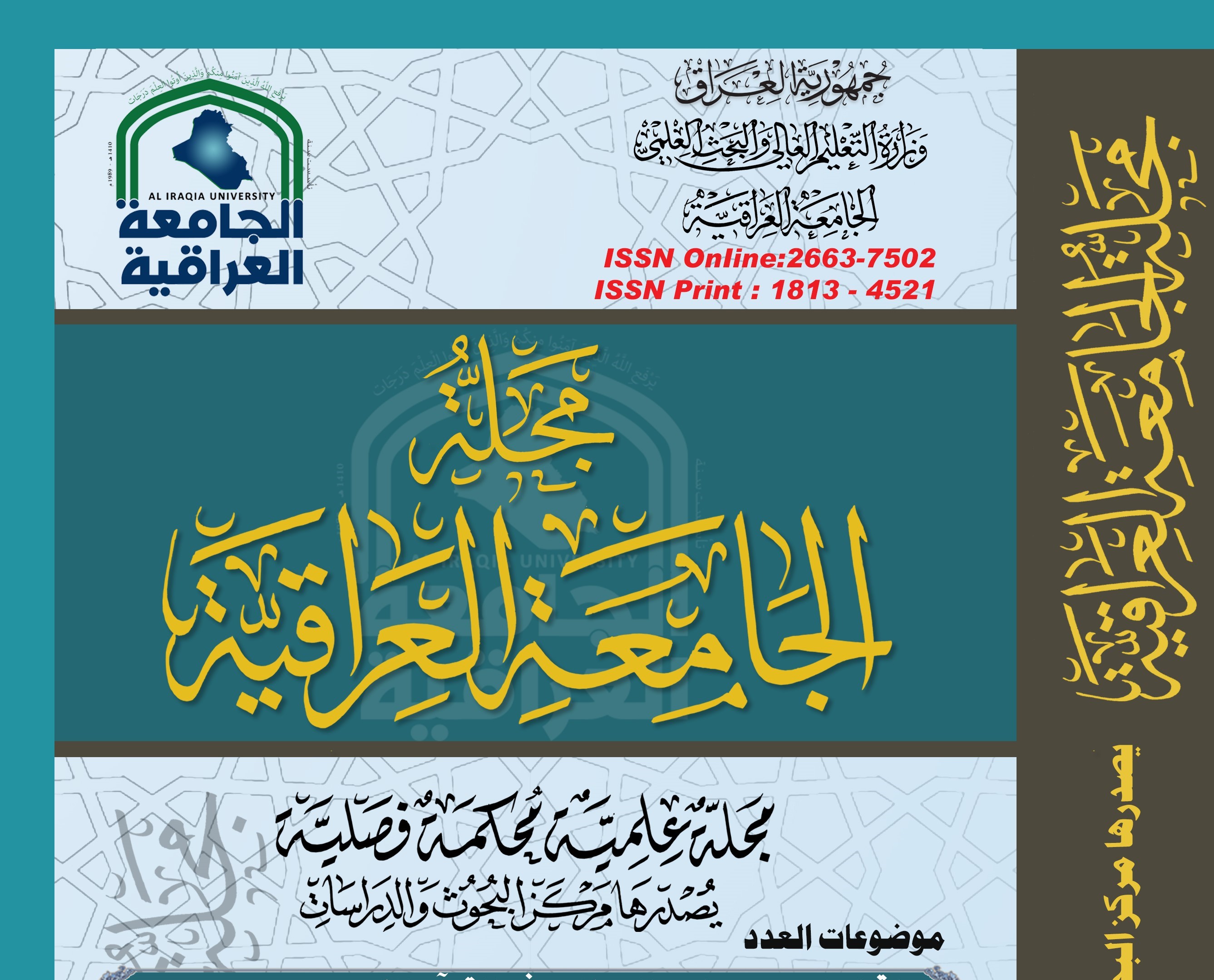Abstract
Research Summary
Praise be to God. We praise him, seek help, seek his help, seek forgiveness, and seek refuge with him from the evils of ourselves and the sins of our deeds.As for The jurists have methods that they follow in deriving rulings, and in order to understand these methods, it is necessary to extrapolate the rulings to reach the world’s approach in deducing it, to enlighten us the way in understanding how to deal with texts. Imam Al-Awza’i Abd al-Rahman bin Amr bin Yahmed, the imam of the people of the Levant, was from the seventh class of the great followers of the Tabi'een, the trust of Jalil Hafez, and Ibn Hajar and al-Dhahabi trusted him
His knowledge and creation praised by many scholars. He used to think that knowledge should be received by people verbally, not in the pages of books, because of the ease of tucking and distortion in books, and this may be one of the reasons for the scarcity of his books, which were lost after the earthquake that struck the Levant, and as a result of this we did not find his approach through his writings but through what He was quoted in the books of those who followed him.In order to reach the desired result, we presented the fundamental evidence, then extracted the views of the Imam from books and explained the rules that he follows in issuing his judgments and what are the evidences that he invokes, and we have reached the following results:
1. Imam Al-Awza’i is in front of a mujtahid and not a mujtahid. He bases his rulings on the evidence that he has and is convinced of the strength of this evidence.
2. Imam Al-Awza’i depends mainly on the Qur’an and the Sunnah, so if he did not find the ruling in them, he moved to the rest of the evidence, according to the strength of the evidence.
3. Ijma is an argument for the Imam, and he said with the authority of the types of consensus, but he used to provide consensus in the private over the consensus of the public, and he invoked the consensus of the common people, but the ruling was not based on him alone, but rather he was quoted to strengthen the ruling that he reached.
4. Measurement is his argument, and he depends on it in many of the rulings that he deduces.
5. The saying of the Companions of the Messenger of God is a Static proof for him and he does not leave it after the Book of God and the Sunnah of His Prophet if he finds a way for that.
6. Blocking the excuses is evidence that the Imam cited as evidence, but he did not accept it in all of the rulings, as there are many rulings in which others disagreed with those who said that the excuse is blocking them.
7. The acquisition of the original is used as evidence by the Imam, and he used it in his rulings.
8. The Imam worked hard in some of his rulings and said about the issue according to his opinion.
9. Approval is not an evidence that the Imam invoke in his rulings, since I did not find for him an issue that he cited Approval as evidence.

